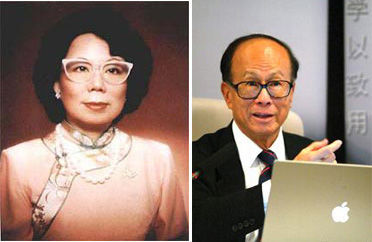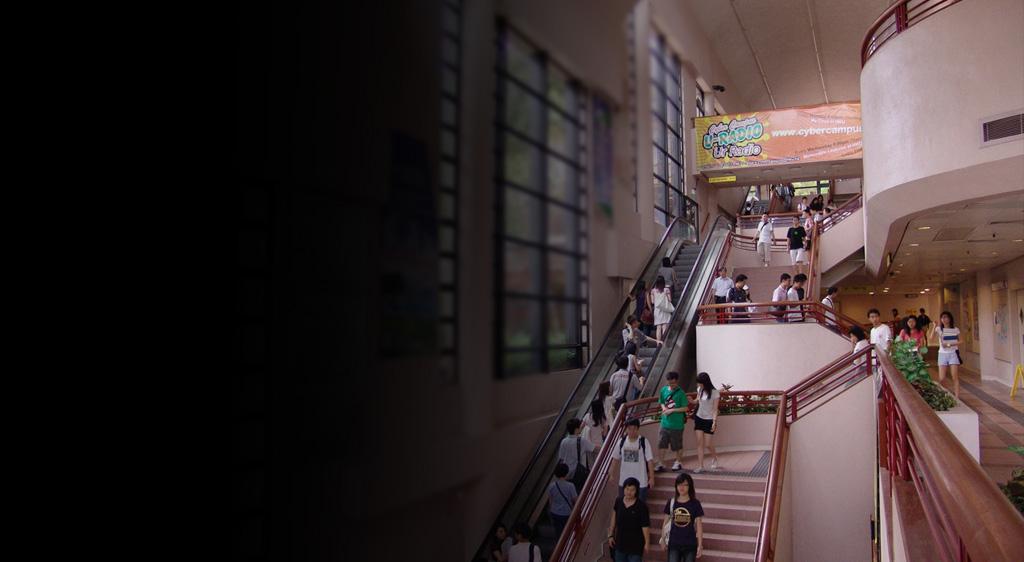1. The courses are more interactive/creative. The lecturers have a lot more control and freedom over here in how they teach and test students. For instance, for my journalism course, as well as more traditional assessments such as writing articles and having tests, we're also assessed on our twitter skills - using the hashtag #hKUDOS to inform people about news on campus.
 |
| Great time to be studying journalism in Hong Kong |
Or for Psychology, in which 20% of our semester marks comes from tutorial attendance and participation - so no awkward, silent tutorials (Psychologists, I'm looking at you) but instead lively debate and discussion.
2. They know how to do food. No more overpriced, disgusting YUM food and nothing else to choose from. We have a noodle restaurant, a vegetarian buffet restaurant, two canteens, a social enterprise cafe, a pizza/kebab takeaway, western restaurant, Subway, Taiwanese food stall, Frozen yoghurt stall, and two Starbucks.
The Starbucks on campus is the pride and joy of HKU, for a pretty good reason...it's THE cheapest Starbucks in the world.
Why? Although I don't understand the details or reasons behind it, HKU subsidises the food outlets on campus - and often by a decent amount. This means a veggie patty sub and cookie from Subway will only cost me $30 (£2.50)
 |
| £1.80 for a coffee? Too tempting.. |
3. The campus and it's facilities
Despite Hong Kong being far more densely populated than Durham, their ability to build upwards, as well as expanding quickly when needed means a large campus with brand-new facilities. It has a massive library and a study centre (Chi Wah Learning Commons), quirky study spaces, pods and beanbags, a free gym, so much food and even a garden with pond.
I have a special love for Chi Wah (although I guess you have to when the workload requires it to absorb your free time) - although it's probably as busy as Durham's library, it's a much nicer space to work in - from mini office cubicle pods, to lovely views over the courtyard, fishtanks and big comfy leather sofas and floor lamps everywhere.
 |
| Chi Wah even has rocking chairs |
 |
| It's nap-time O'Clock |
4. Cheap accommodation. Sure, it's not Durham Castle or anything - no plush carpets, ensuite or cleaners every day, but it's decent. Basic but clean. And it costs less than £1000 for the entire year, self-catered. I wish I could rant and rave about the locals holding meetings and screaming down the corridor at 4am, or that there's only a microwave and two hob rings (although 2 large fridges) between the 30 of us on our floor, but I can't. It's less than 20% the cost of College accommodation in Durham. Bloody marvellous.
5. The lecturers. From my ex-CNN anchor teacher for Journalism, and the monk for my Buddhist Studies course, to my lovely Psychology lecturer and my Mandarin teacher who makes us laugh every lesson (including our lesson in a local dim sum restaurant). I have to give each of them separate credit for teaching such brilliant classes:
Buddhism
Since I'm taking a class in Buddhist teachings this semester, the course is taught by a local monk. Aside from being a brilliant source of knowledge, he is a fantastic teacher with an open mind and good understanding of how young people see the world (His first degree was BSc International Business and Computer Science from Oregon!). Unlike what I expected from this course, he has talked about things I never would have expected. Here are some of his best gems:
- Cheesecake (I'm pretty sure it's his most favourite thing ever) - all buddhist teachings can be related to eating cheesecake supposedly.
- Love, sex, and courtship - he's incredibly open about this and it's also kind of funny when he tries matchmaking students in class to explain Buddhist teachings about love.
- Meditation - it must have been incredibly awkward for the latecomer who walked in to find an entire lecture theatre chanting quietly with their eyes closed
- Quantum physics - I have to admit I zoned out a little, but he did to try to help us understand how Buddhism explains quantum physics, among other scientific concepts.
- Occupy Central - an incredibly interesting conversation about what the Buddha would think of it all.
| Ven. Sik Hin Hung |
Psychology
My Psychology lecturer is also just as cool. He is incredibly friendly, always with a smile, and told us that we're always welcome to eat lunch with him as he often eats in the student canteen. He works hard to make his lectures interactive and relevant to real life (unlike Durham which tends to focus on the dry, academic side of Psychology). Here were his lecture rules he laid out at the beginning of the semester:
- Have a nap if you need to, I will never wake you up - you'll feel better after a little sleep!
- Sometimes, what your friend is saying to you is more important than what I'm saying - if you want to talk, you can (as long as you don't distract others around you).
- Sometimes, there's something interesting on Facebook, and if you want to look at your phone, you can (as long as you don't distract others around you).
I can't think of any lecturers in Durham who have given me explicit permission to sleep in lectures!
 |
| The lovely Dr Harry Hui |
Mandarin
Coming from Mainland China, but living in Hong Kong for 10 years, our Chinese teacher is very open-minded and honest about life in China (even when compared to other Mandarin teachers in the department). As well as answering all of our many questions for her, both on Hong Kong politics and life in the mainland, she also makes an effort during our class break to show us snippets of Chinese pop songs (including the weirder "Chick, Chick" - see below!) and TV shows - including their version of Take Me Out.
She's also keen to get us to experience Chinese culture - she's given us ideas for Chinese films and TV to watch, and even taken us out for dim sum and finding vegetarian options for me one lesson! Although she said it was impractical for a field trip when we suggested a class visit to Shenzen, she promised she would come along if we were going and invited her.
I have never met someone who is so open-minded to different cultures, and it is refreshing to have a class in which we can joke about China's own silly traditions or her inability to say certain words (such as the ll at the end of 'hall') as well as telling us the parts of Chinese culture she truly believes would benefit us, or how we will always be ripped off even though we've learnt to bargain because we have "a foreign face".
Chick, Chick (NB: most Chinese music isn't this odd)
Thanks for an awesome 1st semester, HKU!










